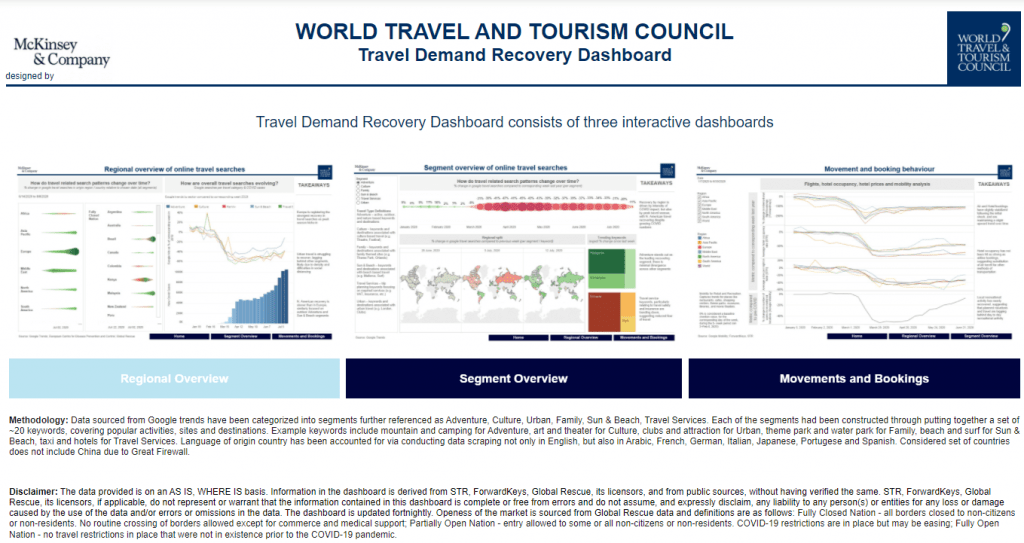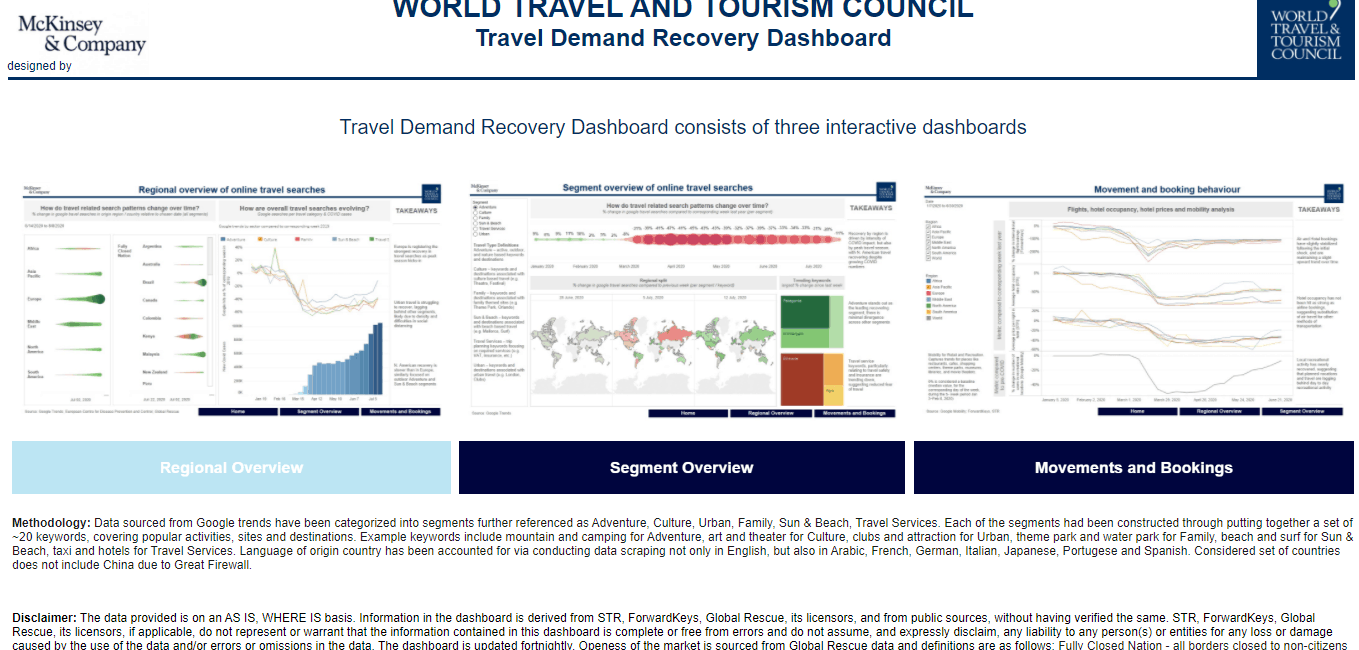On Thursday (20 August), World Travel & Tourism Council (WTTC), launches a new in-depth data dashboard highlighting the recovery of travel demand across flights and hotels, as well as revealing the shifting intentions of travelers through online travel searches.
According to a statement by WTTC, the COVID-19 Travel Demand Recovery Dashboard, provides users with easy access to qualitative and quantitative travel data at the global and regional level as well as for 33 major countries around the world, by revealing travel demand since the beginning of the year and is updated on a fortnightly basis. It offers a useful way to navigate through a vast array of data as travel demand around the world changes, in response to the gradual reopening of the country’s borders as travel restrictions are across the globe are eased.
The dashboard was developed by WTTC, which represents the global Travel & Tourism private sector, with support from McKinsey & Company. It is free to all WTTC Members and non-members and presents two distinct views based on Google trends and searches, and bookings via WTTC’s research partners in the project.
Global Experts in business intelligence, tourism, and travel trends, ForwardKeys, provide flight data, while premium data benchmarking, analytics and marketplace insights provider for global hospitality sectors, STR, shares hotel occupancy levels.
Gloria Guevara, WTTC chief executive, said, “We have created a unique dashboard featuring qualitative and quantitative data to provide the insights which could be crucial to help the Travel & Tourism sector re-start and map out the path to its recovery. Our dashboard will enable decision-makers to track the impact of public policies by monitoring the positive and negative fluctuations of flight and hotel bookings and also online travel searches, as well as consumer confidence. Data is essential for businesses, governments, and other organizations to make informed choices and drive the policy which will revive a sector that has suffered disproportionally due to the pandemic.”





